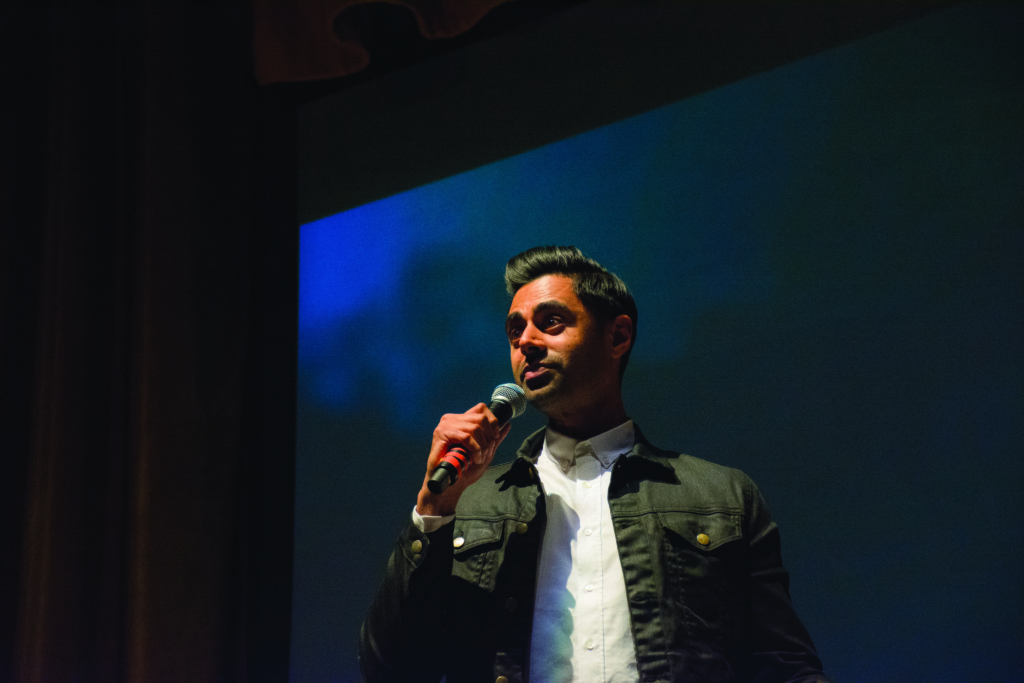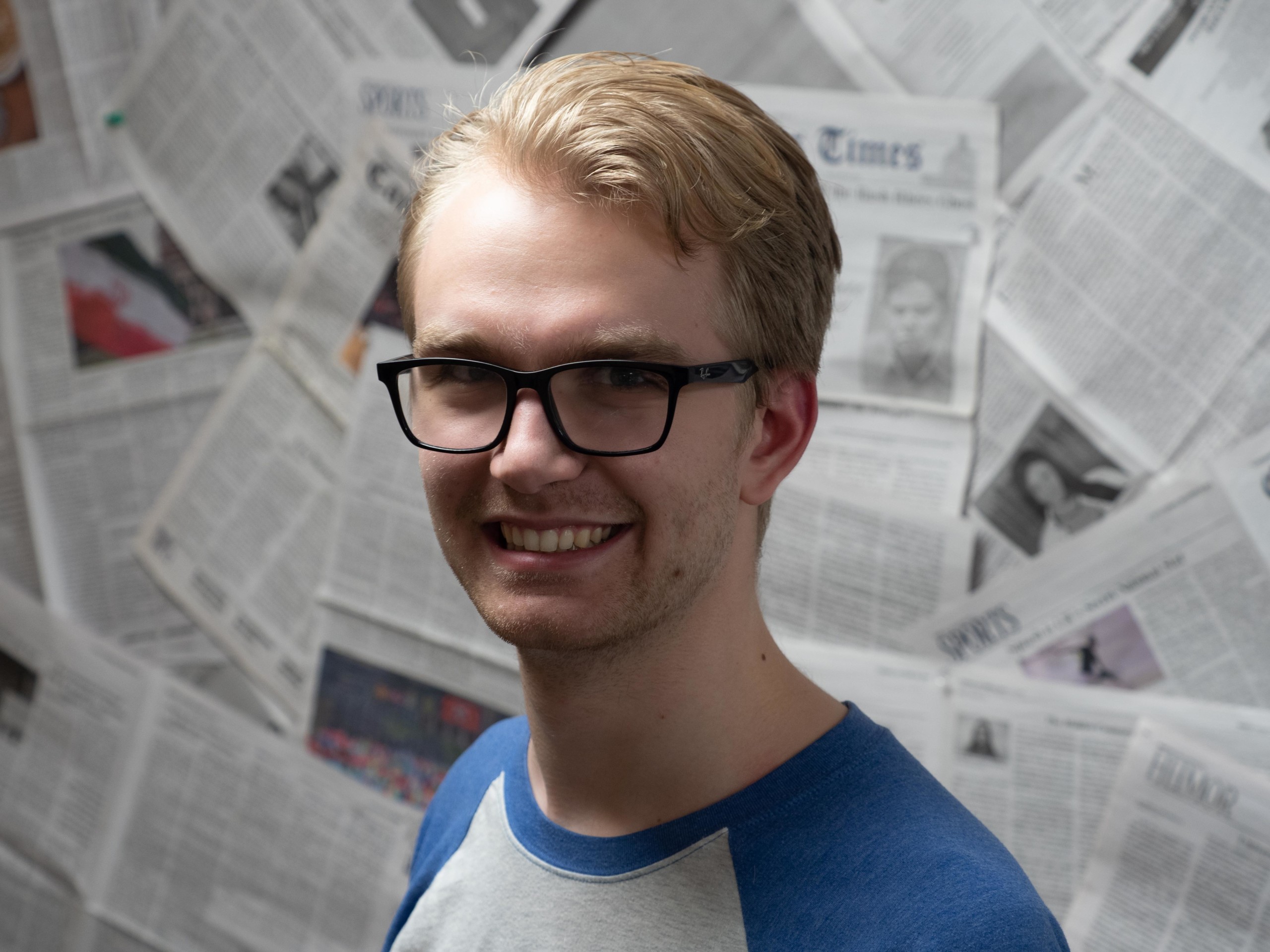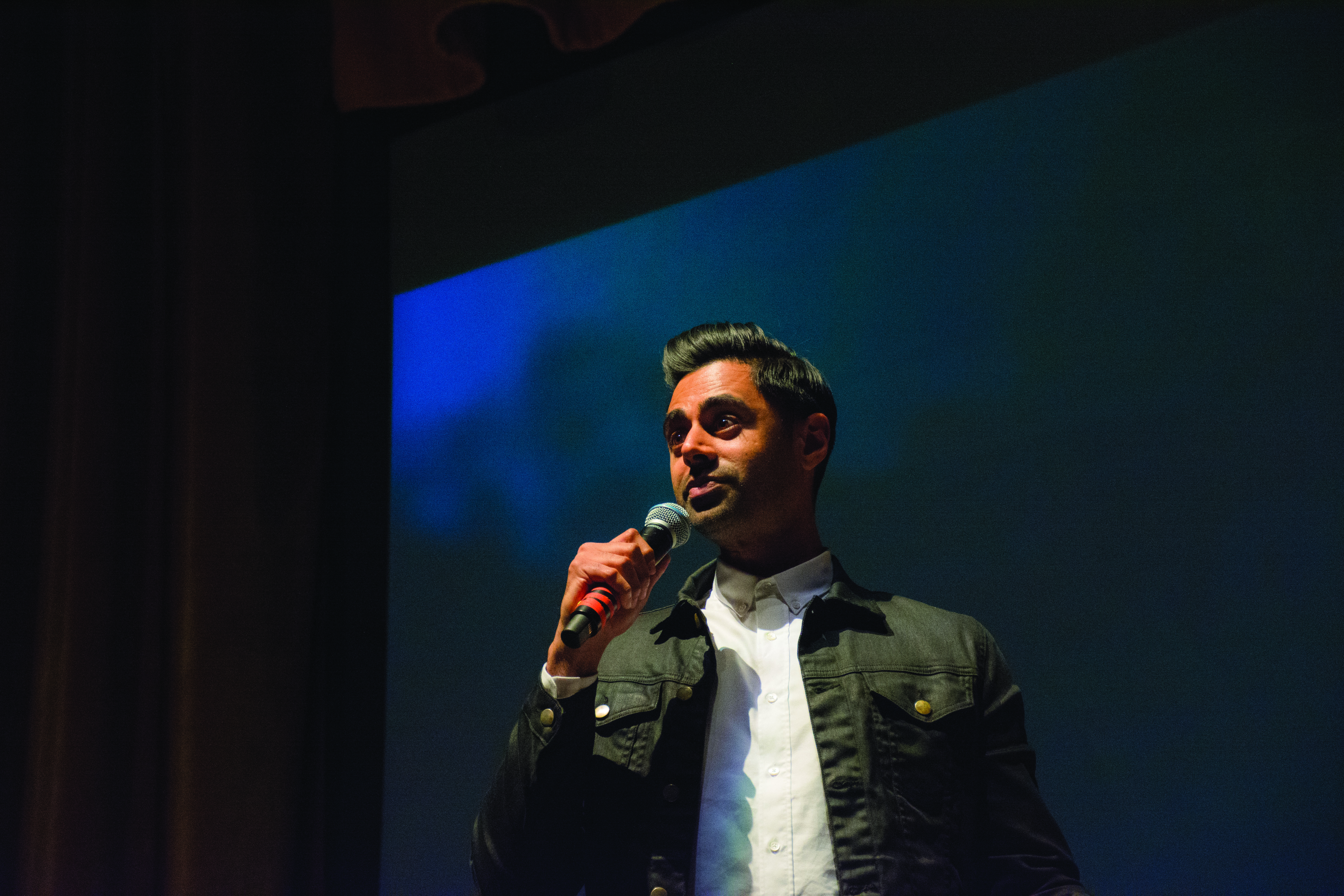It was below freezing outside Strong Auditorium on Saturday evening, but you wouldn’t have been able to tell by the students and visitors lined up outside for a performance by stand-up comedian Hasan Minhaj.
As they waited, audience members swapped recollections of their favorite bits from Minhaj’s “Daily Show” segments and from his Netflix special, “Homecoming King,” released last May. Needless to say, little hype was needed.
All this helped ensure that Minhaj’s opener, James Austin Johnson, was enthusiastically greeted with applause and laughter when he walked on saying, “What’s up, Miami? Let me hear it!” Following a riff with the sign language interpreters (a favorite shtick of visiting comedians), the mustachioed and bespectacled Nashville native covered topics from the homeless population (it wasn’t as offensive as it sounds), to moms who have questions during movies, to the Chainsmokers. A highlight for Johnson was his interaction with an audience member who didn’t know what Johnson meant when he used the term “GD.” (Johnson, apparently, does not use profanity.) Johnson closed with a squeamish and hysterical cover of Burt Bacharach and Hal David’s “Magic Moments,” and introduced Minhaj to roaring cheers and applause.
Minhaj clearly didn’t have to try hard to win over the audience, but he took care of it pretty quickly, starting by asking, “Did I go over the North Wall? Is that where I’m at right now?”
After briefly interacting with a sign-waver in the back from Aligarh (the Indian hometown of Minhaj’s parents), he introduced his hour-long set by explaining that he was testing material for a new special.
Minhaj set the humorous but sincere mood by opening with a photo of refugees struggling to get onto a beach. During his set, much of which was a takedown of the United States’ counter-violent extremism programs, Minhaj used diagrams, news clips, pre-recorded interviews, and infographics in performance, which felt, as a result, less like a stand-up set and more like a comedic TED talk.
Not that the audience minded. This is what Minhaj is known for from his work on “The Daily Show” since 2015. In fact, his set had much in common with his “Daily Show” segment, with Minhaj bringing the audience through his own research on refugees and extremism. Minhaj received waves of laughter throughout, but also applause of approval and gasps at some of the disturbing data he provided.
In one uncomfortable moment, Minhaj noticed someone nodding when he asked the question “Does Islam have a monopoly on extremism?” After resting his head in his hand and sighing he looked up and diffused things by quipping, “We really are in upstate New York.”
After the show, Minhaj stayed for a brief audience Q&A. Here it became evident how valuable Minhaj’s presence as a mainstream comedian is to some.
When one student asked how he dealt with racism, Minhaj responded, “I don’t know. How do you?”
More than questions, however, Minhaj received sincere thank-yous from immigrants and students of South Asian descent.
When one student of South Asian descent asked how he would feel about something like “Black-Ish” (a sweet, topical family sitcom that showcases the everyday life of an African American family), for South Asian families, Minhaj replied, “You should write that!”
The audience burst into applause.
“I am!” the student shouted back.



